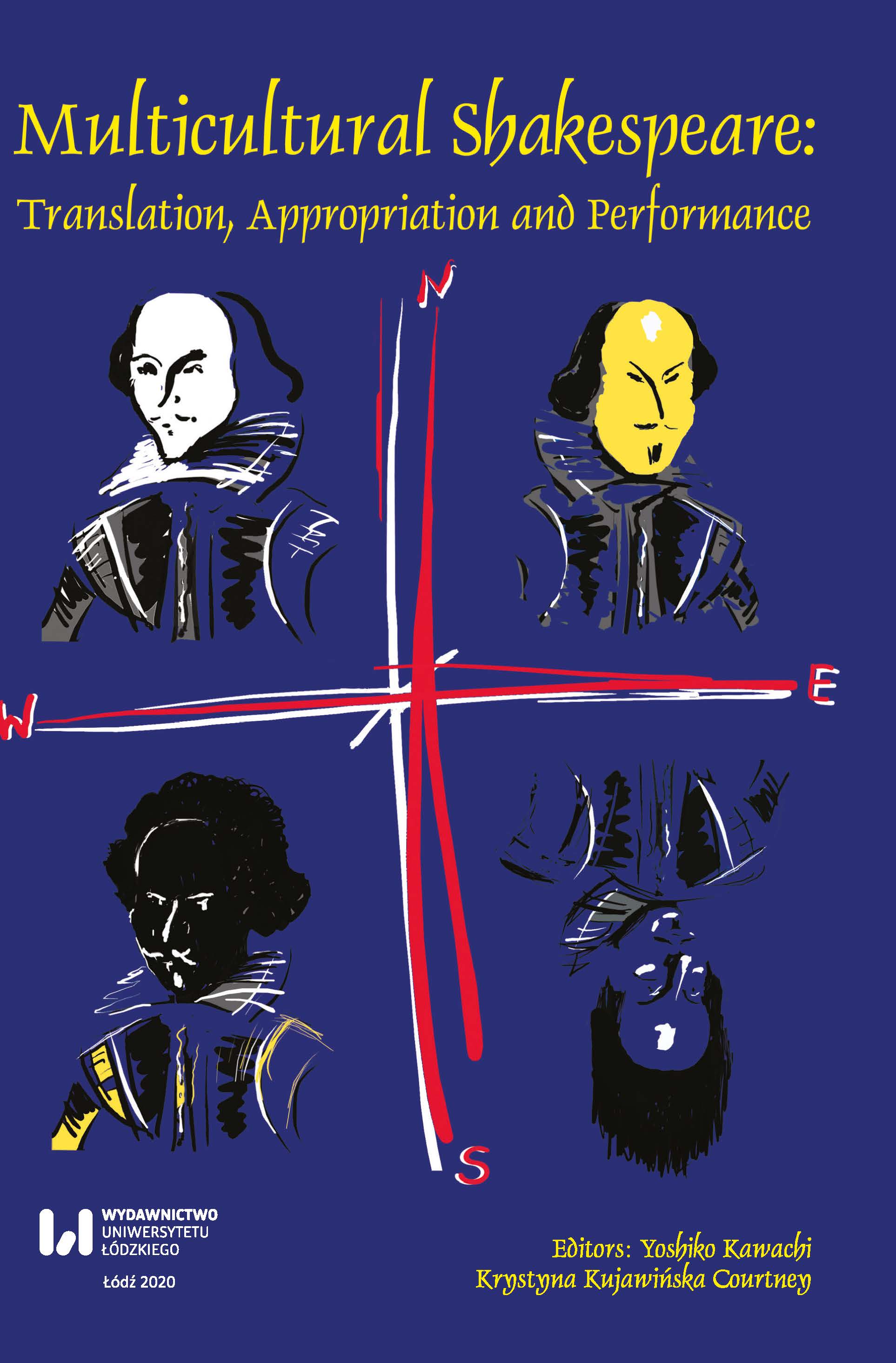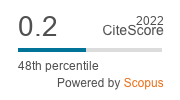When "Macbeth" Meets Chinese Opera: A Crossroad of Humanity
DOI:
https://doi.org/10.18778/2083-8530.21.04Keywords:
Shakespeare, „Macbeth”, Chinese Opera, Intercultural Theater, SinolizationAbstract
As one of the four Shakespeare’s great tragedies, Macbeth, with its thrilling story line and profound exploration of human nature, has been adapted for plays and movies worldwide. Though Macbeth was introduced to China just before the May 4th Movement in 1919, its characters and plot have attracted the world in the past 100 years. Macbeth was firstly adapted into a folk play Theft of a Nation during the modern play period, to mock Yuan Shikai’s restoration of the monarchy, who was considered as a usurper of Qing dynasty, followed by Li Jianwu’s adaptation Wang Deming, Kun opera Bloody Hands, Taiwanese version of Beijing opera Lust and the City, Hong Kong version of Cantonese opera The Traitor, Macao version of small theater play If I were the King, Anhui opera Psycho, Shaoxing opera General Ma Long, Wu opera Bloody Sword, a monodrama of Sichuan opera Lady Macbeth, and an experimental Kun opera Lady. Therefore, this essay aims to comb the relations among various adaptations of Macbeth, to discover the advantages and disadvantages of different methodologies by examining the spiritual transformations of the main character Macbeth and reinvention of Lady Macbeth, and ultimately to observe acceptance of Chinese public, which might give thoughts to communications of overseas literature in China.
Downloads
References
Cao, Shujun; Sun, Fuliang. Shakespearean Plays on the Chinese Stage. Harbin: Harbin Publishing House, 1989.
Google Scholar
Cao, Shujun. Shakespearean Plays’ Spring in China. Beijing: People’s Literature Publishing House, 2001.
Google Scholar
Chinese Research Association of Shakespeare. Shakespearean Plays in China. Shanghai: Shanghai Wenyi Press, 1987.
Google Scholar
Dai, Yawen. Crazy Opera, Innocent Audience: Ten Years of Audience and Performance in Taiwan Theater (1988 – 1998). Translated by Lv Jianzhong. Taipei: Shulin Press, 2000.
Google Scholar
Fischer-Lichte, Erika, ed. The Dramatic Touch of Difference. Tubingen: Gunter Narr Verlag, 1990.
Google Scholar
Hegel. Aesthetic. Translated by Zhu Guangqian. Beijing: Beijing Commercial Press, 1986.
Google Scholar
Hu, Yaohuan. Western Drama Adaptations Problems in Lust and The City. The Chinese and Foreign Literature, 15(11): 77-84, 1987.
Google Scholar
Huang, Zuolin. Why Adapting Shakespearean Plays for Kun Opera. Art of Operas, 4: 4, 1986.
Google Scholar
“Interviews with Production Team of Kun Opera Lady.” 09 January 2018. Opera Stage. 26 June 2019. https://www.bilibili.com/video/av18142444/
Google Scholar
Lan, Fan. A Comparative Study of Chinese and Western Dramas. Shanghai: Xuelin Press, 1992.
Google Scholar
Li, Wanjun. Shakespeare and Chinese Drama from the Perspective of Comparative Literature. Literature Review, 3: 76-86, 1998.
Google Scholar
Li, Weimin. The Dissemination and Influence of Shakespeare’s Tragedy Macbeth in China. Journal of Northwest University (Philosophy and Social Sciences Section), 1: 75-84, 2006.
Google Scholar
Li, Weimin. The History of Shakespeare’s Criticism in China. Beijing: China Opera Press, 2006.
Google Scholar
Li, Xiaolin. Ambition or Destiny – From Macbeth to Bloody Hands till Lust and the City. Foreign Literary Criticism, 1: 140-152, 2010.
Google Scholar
Lei, Bi-qi Beatrice. Macbeth in Chinese Opera. Macbeth. London and New York: Routledge, 2008.
Google Scholar
Liang, Shuming. Eastern and Western Cultures and Their Philosophies. Shanghai: Shanghai People’s Publishing House, 2006.
Google Scholar
Meng, Hua. Comparative Literature Imagology. Beijing: Beijing University Press, 2001.
Google Scholar
Meng, Xianqiang. A Brief History of Chinese Shakespeare Studies. Changchun: Northeast Normal University Press, 1994.
Google Scholar
Moschovakis, Nick, ed. Macbeth: New Critical Essays. London and New York: Routledge, 2008.
Google Scholar
DOI: https://doi.org/10.4324/9780203930700
Nicoll, A. Western European Theory of Drama. Translated by Xu Shihu. Beijing: Chinese Opera Press, 1985.
Google Scholar
Pavis, Patrice, ed. The Intercultural Performance Reader. London and New York: Routledge, 1996.
Google Scholar
Shakespeare, William. Macbeth, Oxford: Oxford University Press, 2004.
Google Scholar
Shakespeare, William. Macbeth. Translated by Liang Shiqiu. Taipei: Fareast Books, 1989.
Google Scholar
“Sichuan Experimental Opera Lady Macbeth Made Its Debut in Cairo.” Embassy of the People’s Republic of China in the Arab Republic of Egypt. 19 October 2010. 07. May. 2019. https://www.fmprc.gov.cn/ce/ceegy/chn/zggk/t762118.htm
Google Scholar
Sun, Qiang. Shaoxing Opera Macbeth – My General Malong. Operas, 5: 48, 2001.
Google Scholar
Wang, Anqi. Contemporary Opera, Taipei: Sanmin Books, 2002.
Google Scholar
Wang, Yong’en. On the Chinese Opera’s Adaptation of Macbeth. Art Critic, 10: 17-24, 2016.
Google Scholar
Wang, Zuoliang. Shakespeare’s Moment in China. Foreign Literature, 2: 12-18, 1991.
Google Scholar
Wu, Xinguo. Walking into Shakespearean World from a Traditional Perspective. The Chinese and Foreign Literature, 15(11): 50.
Google Scholar
Zhang, Longxi. The Metamorphosis of Shakespeare: From Text to Performance. Chinese Comparative Literature (First Issue). Hangzhou: Zhejiang Wenyi Publishing House, 1984.
Google Scholar
Downloads
Published
How to Cite
Issue
Section
License

This work is licensed under a Creative Commons Attribution-NonCommercial-NoDerivatives 4.0 International License.












